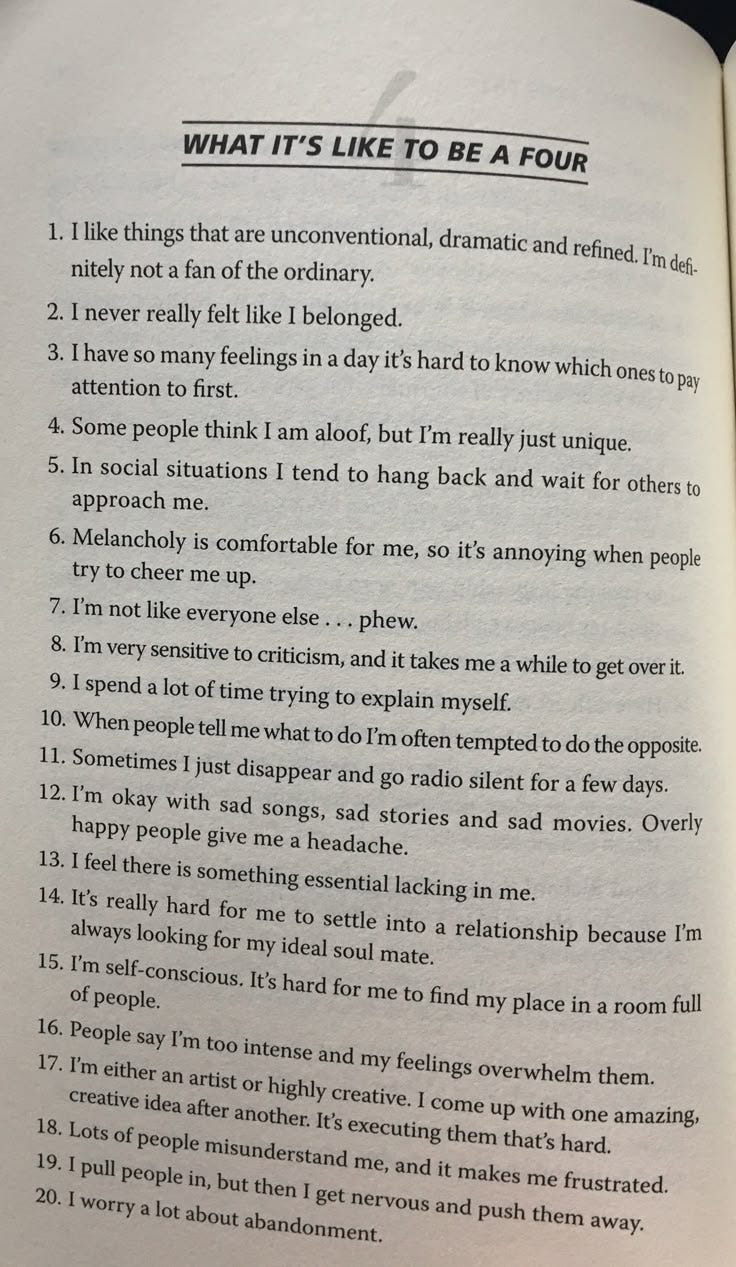Why I am leaving behind the enneagram
on finding a deeper, fuller picture of myself as His beloved and not in mere theory
People start telling you who you are from the time you are in diapers.
It is even before that. Your movement in the womb is analyzed as an indicator of your disposition, when your wiggling may just be a result of the ginger ale your mom just drank and less about where you fall on the scale between introvert and extrovert.
Then you get older, and your personality starts to show. Maybe you are more quiet, or more talkative. You get these traits about you reinforced by the adults and peers around you, for better or for worse. This is usually not out of malintent, but mere out-loud observations.
The trouble with these observations, is they become more concrete as you get older both on the positive and the negative end. A big part of maturing into adulthood is the process of trying to discover your personality, especially once you move away from home, and the people who have told you who you were, for better or for worse, for so long. This can be quite difficult. Trying to figure out what parts of you are authentic and which parts are not. Are you naturally quiet or is that a learned behavior that you have adopted in your family system? It is all a very complicated process and one that starts in early middle school and continues to ebb and flow throughout your early 20s.
In early high school, I discovered the magic of personality tests.
Specifically, the enneagram. I was thrilled to align with the traits of an enneagram four, which reinforced my experience of feeling individualistic, misunderstood, creative, and all that jazz. I was eager to categorize others in my life and look through their lens of whatever number they resonated with the most.

My parents and friends quickly latched on to the enneagram as well and felt like it resonated with them deeply. There are many Christian podcasts and books on the enneagram, so it always felt safe, and more spiritually infused than other personality tests. I heard rumblings that it had some suspicious beginnings, but I shrugged my shoulders, reassuring myself that it was just a “lens to look at myself through,” but it was not until the gentle, quiet voice of the Holy Spirit started to challenge me about this.
I started reading “Surrender to Love” by David G. Benner this week, at the recommendation of my spiritual director. The 128-page read dives into how our primary identity is that we are loved by God. He gently critiqued the human inclination to categorize and box ourselves into different personality frameworks, and how that can keep us from spiritual growth.
The problem in thinking in terms of personality types is that people too easily put themselves (or others!) into a box and fail to encounter the parts of self that don’t fit into the box. No matter how good the system of personality classification, the best typology captures only a small part of the uniqueness of the persons. Large parts always remain outside the box. And the parts that are outside of the box (parts that Carl Jung called the shadow) need development if we are to become truly whole.
Benner emphasizes the importance of practicing finding our identity in God, based on experiential knowing of ourselves as deeply loved by God, not by learning more information about our personality and disposition. We need to experience more of God, leading us to the truest version of ourselves, and less of relying on other outside sources that likely are reductive or inaccurate of us as whole people.
As somebody with a deep interest in psychology and spiritual formation, it makes sense why these different methods of categorizing people have been so captivating to me. It is so satisfying to see somebody articulate something about myself I never had the words for or the awareness of. These tests and systems can also be particularly helpful in trying to understand people who are quite different from me.
Lately, however, I have felt less affinity for these personality tests to which I once clung. I can attribute my disenchantment to the enneagram specifically from this substack piece by Christina Lynn Wallace. She highlights the murky origins of this personality framework that has been wholly embraced by so many Christians as truth.
It is a longer piece, and she has the option for you to listen to it, so I highly recommend listening to the audio version if you have the capacity and want to learn more about my hesitations with the enneagram.
Keep reading with a 7-day free trial
Subscribe to Jenna’s Column to keep reading this post and get 7 days of free access to the full post archives.



